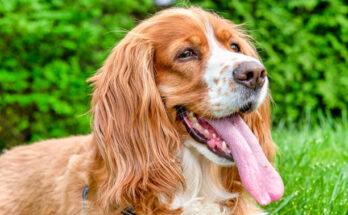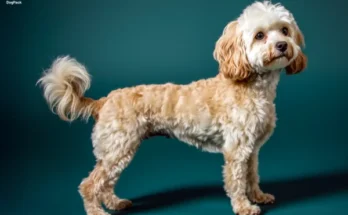Canine history features the Black and Tan Terrier throughout its stages, which include dog shows and family home presence. Through its development as an ancestor breed numerous contemporary terriers inherit active hunting capabilities and loving personality, and faithful commitment. The guide contains all vital details about Black and Tan Terriers through examining their historical development along with their physical structure along with training practices and medical needs and grooming procedures.
Table of Contents
- Introduction to Black and Tan Terriers
- History and Origin
- Physical Characteristics
- Personality and Temperament
- Training a Black and Tan Terrier
- Exercise and Activity Needs
- Nutritional Requirements and Diet
- Grooming and Hygiene
- Common Health Issues and Preventive Care
- Socialization and Behavior
- Living Conditions and Adaptability
- Fun Activities and Games
- Conclusion
Introduction to Black and Tan Terriers
Among many terrier breeds exists a compact yet powerful canine breed that forms the genetic basis for today’s terriers and goes by the name Black and Tan Terrier. Black and Tan Terriers employ their hunting capabilities together with their affectionate behavior because they possess black coats with tan patterns. Before gaining recognition from hunters, the Black and Tan Terrier survives today mostly because it excels at family roles and adapts well to multiple living spaces.
What Makes Them Unique?
This breed of dogs stands out due to their bold character, which converges with their compact, muscular structure. Customers benefit from their determination to excel during both hunting operations and bonding sessions with their extended family.
History and Origin
Roots in England
The Black and Tan Terrier received early English praise for its hunting dedication, which included rat elimination and killing small game. After rough-coated and smooth-coated terriers were crossbred, urban individuals and farmers adopted their resulting dog, which led to widespread acceptance across all societal groups.
Development and Influence
Pure Black and Tan Terriers have become very rare but contribute to the breeding lines that produced both Manchester Terriers and English Toy Terriers.
Fun Fact: Householders who had Black and Tan Terriers in England throughout the eighteenth century displayed their proof of vermin-free, neat homes by branding them.
Physical Characteristics
Size and Build
- Height: 10–15 inches at the shoulder
- Weight: 8–14 pounds
- Build: Compact, muscular, and athletic
The Black and Tan Terrier showcases physical strength combined with speed needed for dog working roles in medium-sized yet robust dimensions.
Coat and Colors
The distinctive characteristic of this breed involves its glossy black coat structure alongside tan markings that extend to its face and front and below legs.
Coat Texture
- Short and dense
- The sleek, polished appearance results from its soft texture that allows for comfort to touch.
Color Pattern
- Jet black body
- Deep mahogany or rust-colored markings
Black and tan colors create a timeless, elegant look that distinguishes the Black and Tan Terrier.
Personality and Temperament

What Are Black and Tan Terriers Like?
Black and Tan Terriers announce their full personality at each instance they appear. Due to their intelligent nature and brave disposition Black and Tan Terriers bring together their spitefulness with their loyalty toward family members. Despite their modest size Black and Tan Terriers perform watch duties because their accurate perception skills remain strong.
Are They Good Family Dogs?
Yes, with proper training and socialization. Black and Tan Terriers connect deeply with their family members while demonstrating joyful and loving behaviors toward children. Black and Tan Terriers need close supervision in interactions with children below a specific age threshold.
Are Black and Tan Terriers Good Guard Dogs?
Absolutely. The Black and Tan Terrier warns its owners promptly by staying alert, yet protects them entirely only if they encounter provocation.
Training a Black and Tan Terrier
Intelligence and Trainability
Both mental speed and excellent learning abilities define the characteristics of Black and Tan Terriers. The self-disposition of Black and Tan Terriers makes dog ownership initial stages difficult for new pet owners. Early, consistent training is essential.
Basic Training Tips:
Begin obedience and socialization early
Trainers need to combine food incentives along with words of encouragement and play items when they teach their dogs.
Maintain direct sessions using enthusiastic activities throughout the session to match their time span of attention.
Maintain firm but gentle leadership
Socialization
Your Black and Tan Terrier puppy needs extended interaction with various people, together with animals and diverse locations. The combination of early training develops dog self-assurance and stops the development of future behavioral concerns like fear and aggression.
Exercise and Activity Needs
Daily Exercise Requirements
The high energy traits inside Black and Tan Terriers require owners to dedicate at least sixty minutes to daily exercise for their overall health needs.
Exercise Ideas:
- Fast-paced walks
- Fetch in a fenced yard
- Agility courses
- Chase games and tug-of-war
Mental Stimulation
The Black and Tan Terrier thrives best when mentally challenged since dogs of this breed always need cognitive stimulation activities to stay satisfied.
Ways to Engage Their Minds:
- Puzzle toys
- Hide and seek with treats
- Scent work games
- Advanced trick training
Stimulating their brains aids in preventing free time-related destructive and troublesome conduct.
Nutritional Requirements and Diet
Recommended Diet
An active terrier requires a well-rounded diet rich in protein and essential fats.
Ideal Foods:
- Lean meats like turkey, chicken, and beef
- Salmon and sardines for Omega-3 fatty acids
- Fresh vegetables like carrots and green beans
- Fruits such as blueberries and apples (without seeds)
Feeding Schedule
- Puppies: 3–4 meals per day
- Adults: 2 meals per day
Portion control plays an essential role in obesity management since small breeds commonly develop this health issue.
Make fresh water available at all times while restricting access to human food and table scraps.
Grooming and Hygiene
Grooming Routine
The moderate and natural coat of Black and Tan Terriers results in easier maintenance requirements compared to other terrier breeds.
Grooming Essentials:
- Brushing: 1–2 times per week to remove dead hair
- Bathing: Once a month or as needed
- Nail trimming: Every 3–4 weeks
- Ear cleaning: Weekly to prevent infections
- Teeth brushing: 2–3 times per week
Early detection of skin concerns and parasite infestations is possible through regular grooming assessments.
Coat Maintenance by Age
- Puppies: Light brushing to get them used to grooming
- Adults: Regular brushing to maintain shine and coat health
Common Health Issues and Preventive Care
Common Health Conditions
Black and Tan Terrier dogs experience normal lifespan expectations but have predispositions to healthcare problems, which include:
- Patellar Luxation: Dislocation of the kneecap
- Heart Disease: Particularly in older dogs
- Eye Disorders, Such as cataracts
- Obesity: Due to overeating and low activity levels
Preventive Care:
- Annual veterinary checkups
- Up-to-date vaccinations
- Regular heartworm and parasite prevention
- Monitoring weight and diet
- Prompt attention to any lameness or eye issues
Early detection of problems leads to longer, healthier lives.
Socialization and Behavior
Tips for Socializing Your Black and Tan Terrier:
- Attend puppy classes
- Introduce yourself to a variety of people and animals early
- Reward calm, confident behavior
- Gradually exposed to different environments, sounds, and experiences
Common Behavioral Traits
- Energetic: Needs daily physical and mental outlets
- Confident: Sometimes verging on bossy
- Protective: Loyal to family members
- Affectionate: Thrives on human attention
- Curious: Always investigating their surroundings
Proper training and activity keep their lively traits enjoyable rather than overwhelming.
Living Conditions and Adaptability
Best Living Environments
Black and Tan Terriers establish their position in various residential living environments because of their adaptable medium size.
Suitable Homes:
- Apartments (with daily exercise)
- Suburban homes with fenced yards
- Rural areas with supervised outdoor access
Climate Sensitivity
- Cold Weather: They handle chilly temperatures reasonably well but may need a sweater in harsh winters.
- Hot Weather: They can overheat easily; always provide shade, fresh water, and avoid midday exercise.
Fun Activities and Games
Physical and Mental Games
Black and Tan Terriers love fun, fast-paced games that tap into their instincts.
Game Ideas:
- Fetch: Quick sprints satisfy their chase drive
- Agility: Jumping, weaving, and racing through courses
- Nose Work: Finding hidden treats or toys using scent
- Tug-of-War: Engages muscles and burns energy
Enrichment Tools
- Food puzzles
- Scented toys
- Training new tricks or commands
- Interactive feeder bowls
Switch activities regularly to prevent boredom.
Conclusion
The Black and Tan Terrier unites early bravery features with smart alleles and spirited character traits among their breed characteristics. A Black and Tan Terrier welcomes multiple years of companionship, together with adventure, while providing enjoyment to families who exercise physical stimulation and focus on its mental enrichment needs.
Key Takeaways:
For complete happiness, a Black and Tan Terrier requires standard physical exercise and stimulating mental challenges.
A combination of planned grooming appointments alongside health examinations leads to stretched periods of good physical wellness.
Early and consistent socialization fosters a well-behaved, confident adult dog.
The energetic disposition of Black and Tan Terriers combines perfectly with their protective nature to create happy home pets who guard their territory diligently.
A Black and Tan Terrier adopted from your home will give you numerous years of devoted friendship backed by its lively yet non-altered behavior mixed with its two-color pattern.




